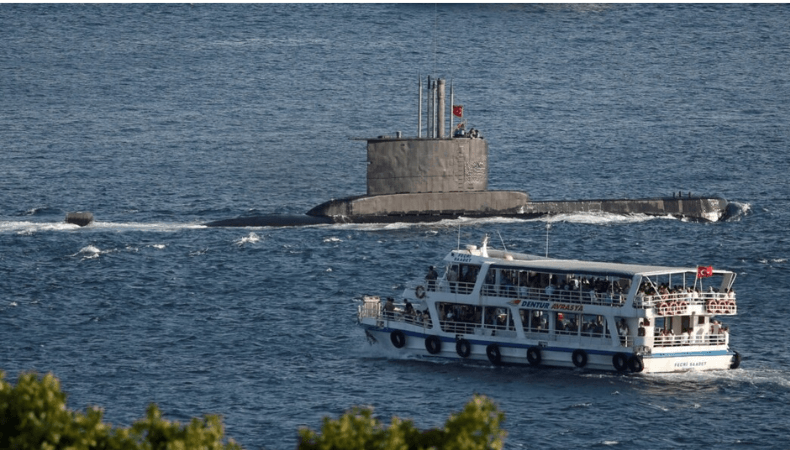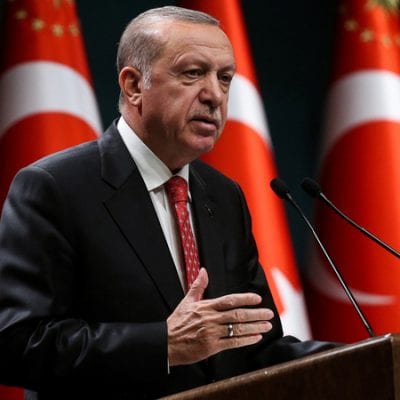How the U.S.-Greece Arms Deal Could Shift the Balance of Power in the Eastern Mediterranean and the Black Sea

On January 29, 2024, the U.S. and Greece announced a landmark arms deal worth $3 billion, which includes the sale of 24 F-35 fighter jets, four MQ-9 Reaper drones, and six MH-60R Seahawk helicopters to Greece.
The deal also includes the provision of training, maintenance, and support services to the Greek armed forces. The deal was signed by U.S. Secretary of State Antony Blinken and Greek Foreign Minister Nikos Dendias in Athens, in the presence of Greek Prime Minister Kyriakos Mitsotakis and U.S. Ambassador to Greece Geoffrey Pyatt.
The deal is the largest and most significant defense cooperation agreement between the two countries in decades, and reflects the deepening strategic partnership between the U.S. and Greece in the face of rising challenges and threats in the region. The deal also demonstrates the U.S. commitment to support Greece’s defense modernization and to enhance its interoperability with NATO and other allies.
Keep Reading
The Implications
The U.S.-Greece arms deal has major implications for the security and stability of the Eastern Mediterranean and the Black Sea, where Greece faces increasing tensions and disputes with its neighbors, especially Turkey. Some of the implications are:
- Implication 1: The deal will boost Greece’s deterrence and defense capabilities. The deal will provide Greece with advanced and sophisticated weapons systems that will improve its air, sea, and land capabilities. The F-35s, which are stealthy and versatile, will give Greece an edge over Turkey, which was expelled from the F-35 program by the U.S. in 2019 due to its purchase of the Russian S-400 air defense system. The Reapers, which are armed and capable of long-endurance surveillance, will enhance Greece’s intelligence, reconnaissance, and strike capabilities. The Seahawks, which are designed for anti-submarine and anti-surface warfare, will strengthen Greece’s naval power and maritime security.
- Implication 2: The deal will increase the U.S. presence and influence in the region. The deal will expand the U.S. military footprint and access in Greece, which hosts several U.S. bases and facilities, such as the Souda Bay naval base in Crete, the Larissa air base in Thessaly, and the Stefanovikio helicopter base in Central Greece. The deal will also increase the U.S. involvement and engagement in regional affairs and conflicts, such as the Cyprus issue, the Libya crisis, and the energy exploration disputes. The deal will also signal the U.S. support and solidarity with Greece and its allies, such as Israel, Egypt, and Cyprus, which form the Eastern Mediterranean Gas Forum (EMGF), a regional bloc that aims to cooperate on energy and security matters.
- Implication 3: The deal will put pressure on Turkey and its relations with the U.S. and NATO. The deal will likely provoke a negative reaction from Turkey, which considers Greece as its main rival and adversary in the region. Turkey may perceive the deal as a threat to its national interests and sovereignty, and may respond by increasing its military activities and provocations in the Aegean Sea, the Eastern Mediterranean, and the Black Sea, where it claims extensive maritime zones and rights. The deal may also worsen the already strained relations between Turkey and the U.S., which have diverged on various issues, such as Syria, Iran, and human rights. The deal may also create friction and division within NATO, which both Greece and Turkey are members of, and which has been trying to mediate and de-escalate the tensions between the two allies.
The Outlook
The U.S.-Greece arms deal is a historic and strategic move that will have significant and lasting effects on the regional dynamics and balance of power. The deal will enhance the security and stability of Greece and its partners, but it will also pose challenges and risks for Turkey and its relations with the U.S. and NATO.
The deal will require careful and prudent management and coordination by all the relevant actors, in order to avoid escalation and confrontation, and to promote dialogue and cooperation.






